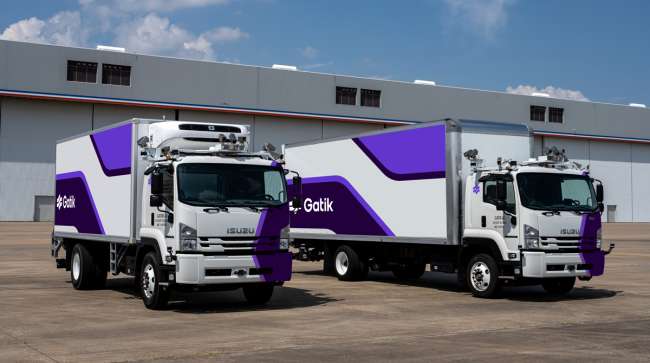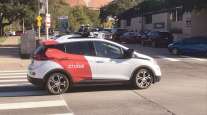Staff Reporter
Gatik AI Partners With Experts for Autonomous Safety Audit

[Stay on top of transportation news: Get TTNews in your inbox.]
Autonomous trucking firm Gatik AI is putting its technology under the microscope, launching a safety review that it hopes will become a blueprint for the entire sector, the company revealed Oct. 8.
The Mountain View, Calif.-based autonomous transportation technology company committed to not launching driverless operations until its systems satisfied a rigorous examination by independent third parties. Edge Case Research and Tüv Süd were brought on to provide that outside perspective and validate its development and safety processes.
“The validation of our safety case goes beyond a basic review of safety practices and mission statements,” Gatik CEO Gautam Narang said. “We are auditing our complete autonomous ecosystem to ensure safety in the real world, not just on paper. Our goal is to create safer roads for everyone. We’re taking the bold step of mandating an external audit of our safety case to not only hold ourselves accountable but to help establish a standard for the entire industry.”
Edge is a global safety engineering specialist in autonomous driving systems. It has already deployed dedicated resources and personnel to support the execution of the overall safety strategy across system development, testing and engineering. Tüv Süd, an independent testing and certification organization with experience in autonomous system safety assurance, will conduct audit services focused on factors that impact safety.

Campbell
“Our approach to safety is both very broad in what it covers and also very deep in terms of the level of detail that it is evaluating,” said Adam Campbell, safety innovation lead at Gatik. “We’re thinking about it from a preemptive standpoint to ensure that our design, and the manner in which we conduct evaluations at the sort of architectural level of our system, is done with risk-appropriate management and risk mitigation in place.”
The evaluation examines multiple facets of operations, from the core self-driving component to the ecosystem of supporting services. Campbell emphasized that the ultimate goal is for the system to pose no unreasonable risk to the public when conducting freight-only operations, meaning fully driver-out operations.
“We’re looking at it from the software, hardware side, the testing of the system itself and also training of all staff that are included in the program of evaluating our technology,” Campbell said. “We are not thinking just about the sort of last day when we are done testing and start deploying freight-only vehicles on public roads. We’re thinking about all of the work that needs to happen in the middle where we are evaluating our technology.”
Testing so far has included both closed courses and public roads. The audit aims to recheck the results of those tests while confirming whether the development, training and testing protocols were properly followed.
Want more news? Listen to today's daily briefing above or go here for more info
“The other major piece here is the operational side, which is ensuring we have all the appropriate facilities, vendor and support for service and maintenance, and that all stakeholders, not the least of which are the first responder community and our customers, who will be interacting with our vehicle, both in loading and unloading cargo, are trained, familiar and educated on how to interact with our vehicles,” Campbell said.
Gatik has committed to its customers, investors and the public that its technology will not be deployed in freight-only operations on public roads until its safety case is fully satisfied and closed. Campbell noted that using an independent agency is crucial to ensure the integrity of the results and potentially rebuild public trust.
“Over the last five to eight years, there were a lot of successes in the autonomous vehicle industry,” Campbell said. “There’s also been a few setbacks, and yet, all of those companies involved on both ends of those circumstances have claimed safety before deploying. We believe there has been some trust lost in that exercise historically.”
The audit goes beyond the standards established in the government’s Voluntary Safety Self-Assessment program, which allows companies to voluntarily document the safety aspects of automated driving systems. It will encompass more than 700 safety portfolios, and Tüv Süd has also included its six pillars of safety in the evaluation.




